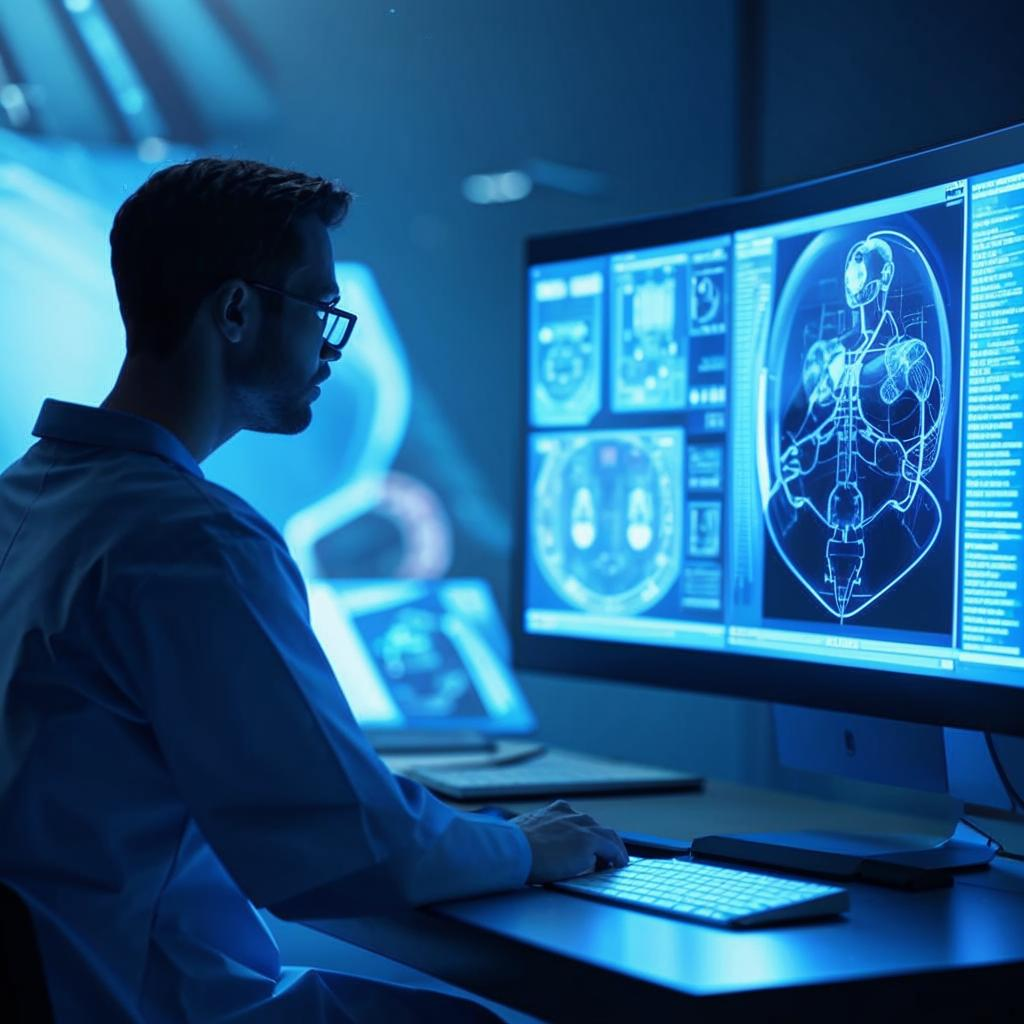Artificial intelligence is rapidly transforming healthcare, promising unprecedented advancements in diagnostics, treatment, and patient care. AI algorithms are now being used to analyze medical images with greater speed and accuracy than human radiologists, leading to earlier and more precise diagnoses of diseases like cancer.
AI is also revolutionizing drug discovery and development, accelerating the identification of potential drug candidates and predicting their effectiveness. Personalized medicine is becoming a reality as AI analyzes individual patient data to tailor treatments to their specific needs, maximizing efficacy and minimizing side effects.
Beyond diagnostics and treatment, AI is enhancing the patient experience. AI-powered virtual assistants are providing patients with 24/7 access to medical information, appointment scheduling, and medication reminders. Chatbots are answering common medical questions, freeing up healthcare professionals to focus on more complex cases. AI is also being used to monitor patients remotely, allowing for early detection of health problems and preventing hospital readmissions.
Despite the enormous potential of AI in healthcare, there are challenges that need to be addressed. Ensuring the privacy and security of patient data is paramount. Bias in AI algorithms must be identified and mitigated to prevent disparities in care. The need for ongoing training and education for healthcare professionals to effectively use AI tools is also crucial. As these challenges are addressed, AI is poised to revolutionize healthcare, improving patient outcomes and transforming the delivery of medical care.












